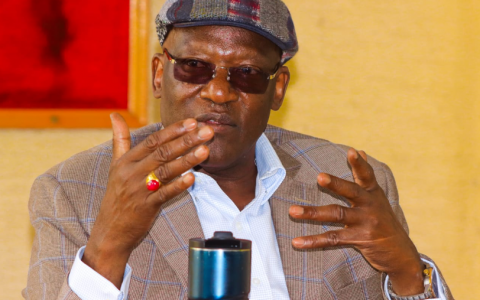New cohort with own script take on officialdom

The discourse around Kenya’s transition politics has just been that: talk. That is until this week when a new generation, brimming with courage, confidence and determination, stepped forth. And they did so in style, not with the old tools but with their own script.
Gen-Z, the previous keyboard warriors, united and poured out into the streets for the first time in unprecedented political action. Whether they had seen or read the 2024 Finance Bill was neither here nor there, but they were united that they did not want it passed.
Many classic images have marked this transition. In one, a young girl confidently speaks to herself on her phone, addressing Raila Odinga, using his moniker Agwambo, and telling him not to bother coming to the protests. Her resolute statement, ‘We got this covered,’ is testifies to the self-assurance and determination of the new generation. Kenya is in safe hands, you are tempted to think.
Elsewhere, battle-hardened Bonface Mwangi, who has seen many protests before, credits Odinga. Mwangi says that Odinga is now aged, transitioning to the African scene, and eggs the younger generation to take matters into their own hands. And they did, with a rare show of women on the frontlines.
It seems as if the politics of this country have been playing at two levels: the old script, this time taking place at State House, where the President was hosting his parliamentary party, and on the streets, where the new generation had mobilised to let the old school know what they thought of the finance bill.
If the young girl were the poster child of the new, the Embu governor would be the poster child of the old. In her address to her colleagues at State House, the chairperson of the UDA grouping, Cecile Mbarire, discussed their priorities. She said the first is to re-elect President Ruto in 2027, followed by a strategy for a Mt Kenya succession that would feature Ndindi Nyoro, Kimani Ichungwa, and probably herself as contestants.
In her address, the Embu governor probably failed to appreciate the nation’s concern about the services that the government should render to the people and the project to save Kenya. This would view the country as an ongoing concern that needs to be kept operational and afloat.
Keyboard warriors have always been active but probably operated below the radar of national consciousness. The country should have been aware of this generation’s potential from a while back. They are fiercely in love with their country. When the global broadcaster CNN misrepresented Kenya, these young warriors forced the leadership of the media giant to fly to Nairobi to offer an apology.
They were unfazed by the size of the New York Times, that towering media of global repute – the newspaper of record. When it crossed them in its reporting, the paper had to set aside time to respond.
It is an age group with different value systems, daring, and not held back by the traditions of the past. Kenya may not have considered that they could turn their wrath against their government. The finance bill provided an opportunity. They pushed the official opposition aside and took centre stage.
The government, however, has not learned how to deal with this new game in town. They showed up dressed for the day, men and women, with songs in mind, smartphones in one hand, and anticipating that their adversary was stuck in old ways, carrying water in bottles to counter the administration. The government unleashed the tools of the past – teargas, bludgeons, and guns.
The rise of the youth has only happened in distant places – the Arab Spring in Tunisia, the protests in South Africa against rising tuition fees, and the Cecil Rhodes monument. Those fizzled out after some time but left their marks. The Kenyan phenomenon is new and worth a study. We wait to see how the government responds to the new alternative voices.
— The writer is the Dean of Daystar University’s School of Communication



